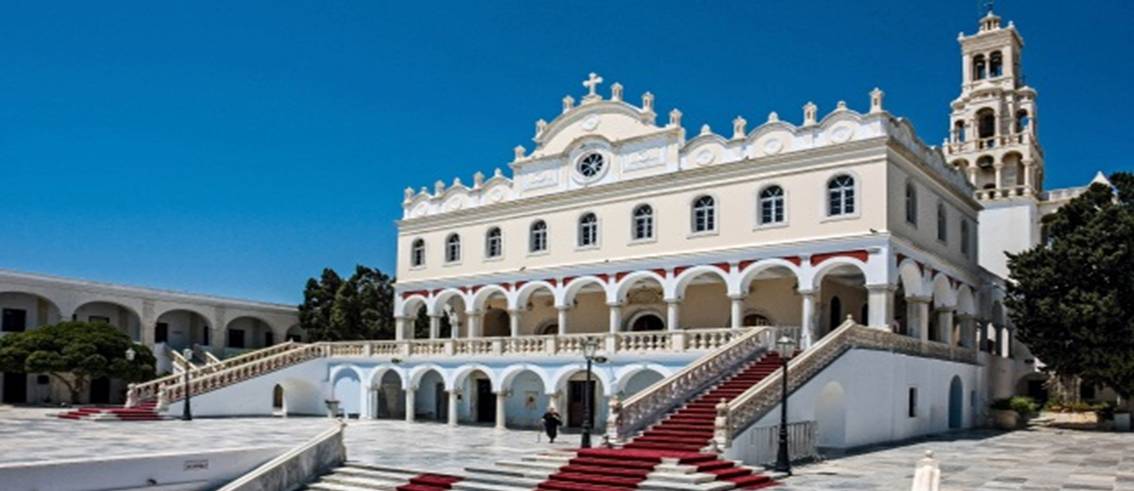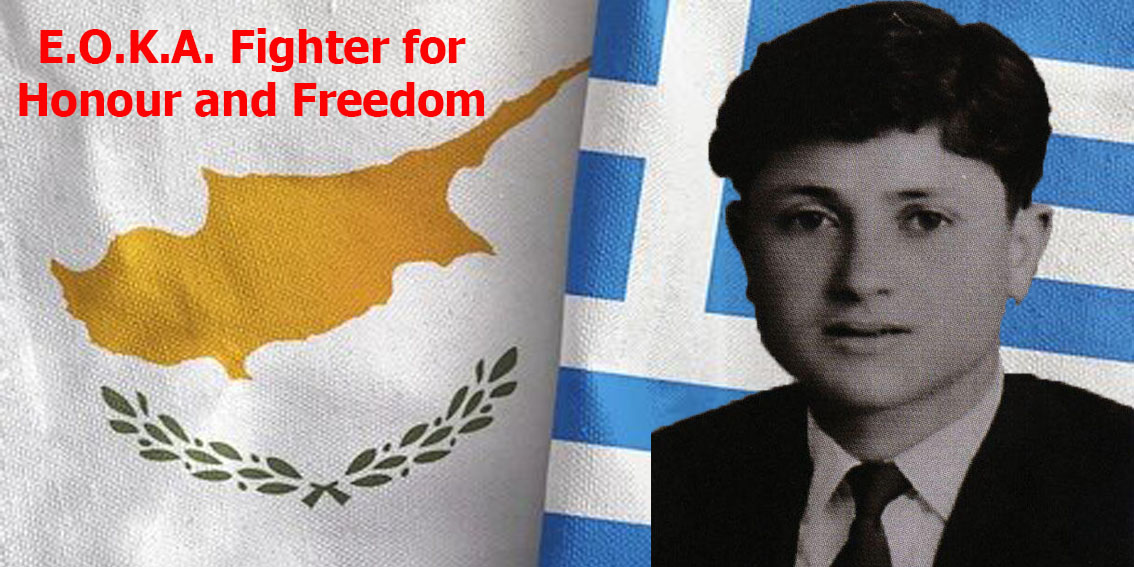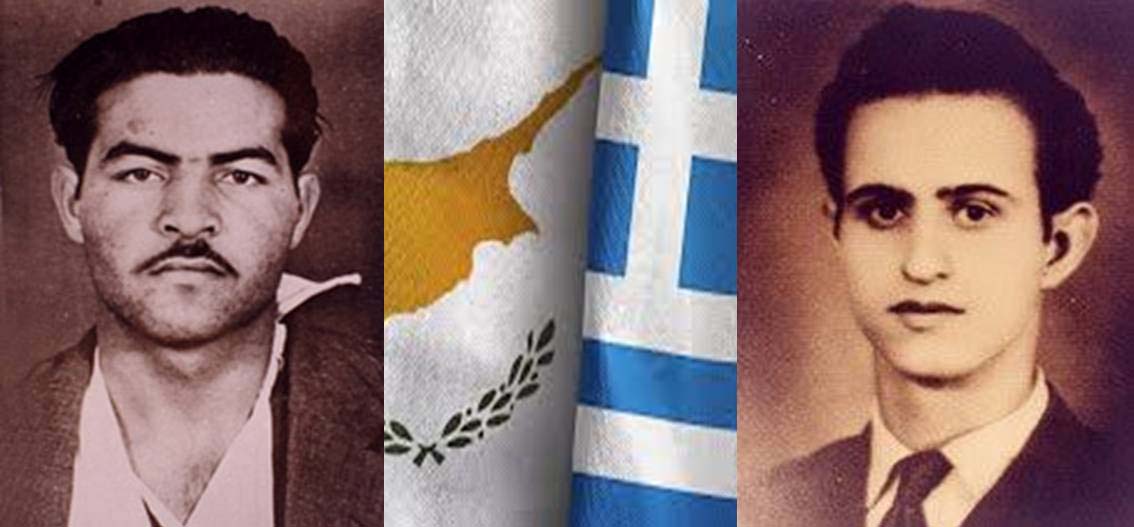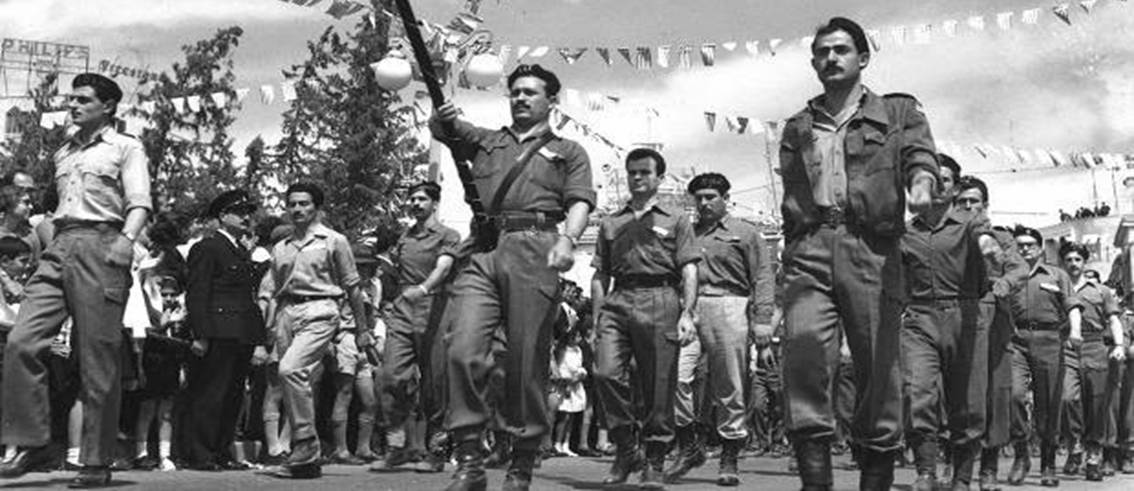The celebration of Dekapentavgoustos
How the Cypriots Celebrate the Dekapentavgousto: Dekapentavgoustos, also known as the Dormition of the Virgin Mary or the Assumption, is one of the most important religious and cultural celebrations in Cyprus. Celebrated on August 15th, this day marks the Dormition (or “falling asleep”) of the Virgin Mary. For Orthodox Christians, it holds deep spiritual significance. For Cypriots, it is not only a religious event but also a time for family gatherings, feasts, and cultural traditions passed down through generations.
Religious Observances
The religious aspect of Dekapentavgoustos is the centrepiece of the celebration. In Cyprus, the day is marked by church services and ceremonies rooted in Orthodox Christian traditions.
The Fast of the Dormition
The period leading up to August 15th is known as the Fast of the Dormition. This two-week fast is one of the most important in the Orthodox Church, second only to Lent. Many Cypriots observe this time through fasting, prayer, reflection, and spiritual preparation.
Church Services: How the Cypriots Celebrate the Dekapentavgousto
On Dekapentavgoustos, churches across Cyprus fill with worshippers attending the Divine Liturgy. Services often begin early in the morning and include special hymns and prayers dedicated to the Virgin Mary.
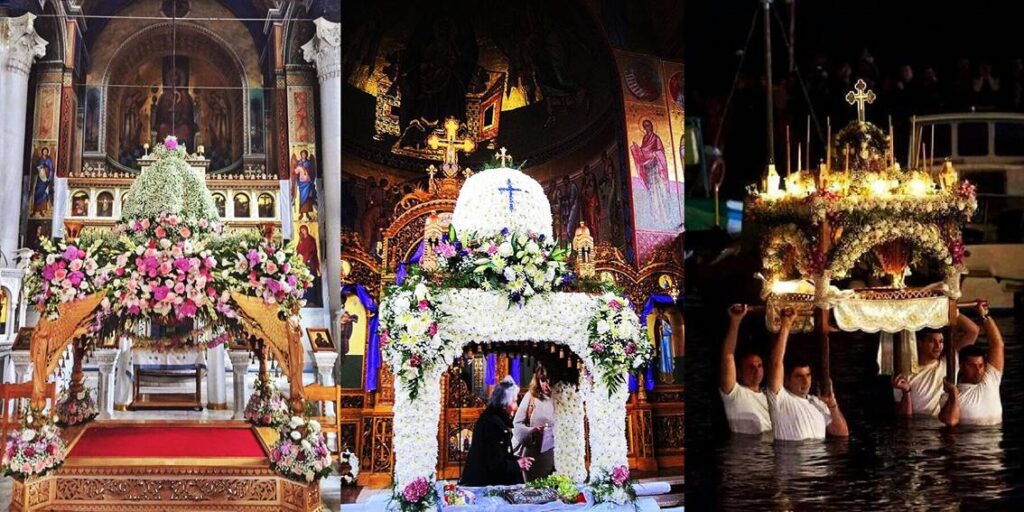
The Epitaphios Procession
A key ritual during the service is the procession of the Epitaphios of the Theotokos. This is a decorated bier or icon representing the body of the Virgin Mary. The faithful carry it around the church, symbolizing her funeral procession. Many bring flowers to adorn the Epitaphios, and these flowers are later distributed as blessings.
Pilgrimages
For many Cypriots, Dekapentavgoustos is also a time for pilgrimage.
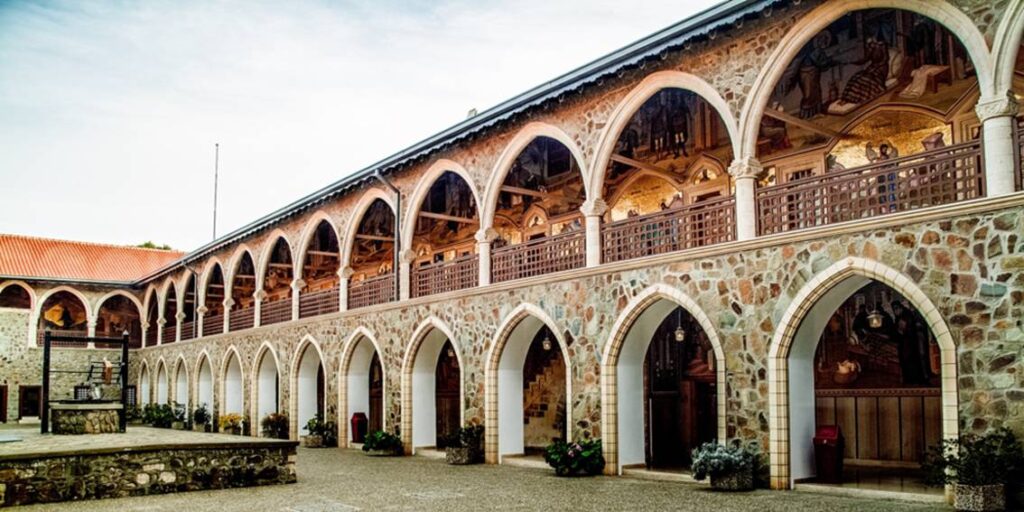
Monastery of Kykkos
One of the most important pilgrimage sites is the Monastery of Kykkos in the Troodos Mountains. The monastery houses a famous icon of the Virgin Mary, believed to have been painted by St. Luke. Many pilgrims visit during Dekapentavgoustos to seek blessings, healing, and to honor the Virgin Mary.
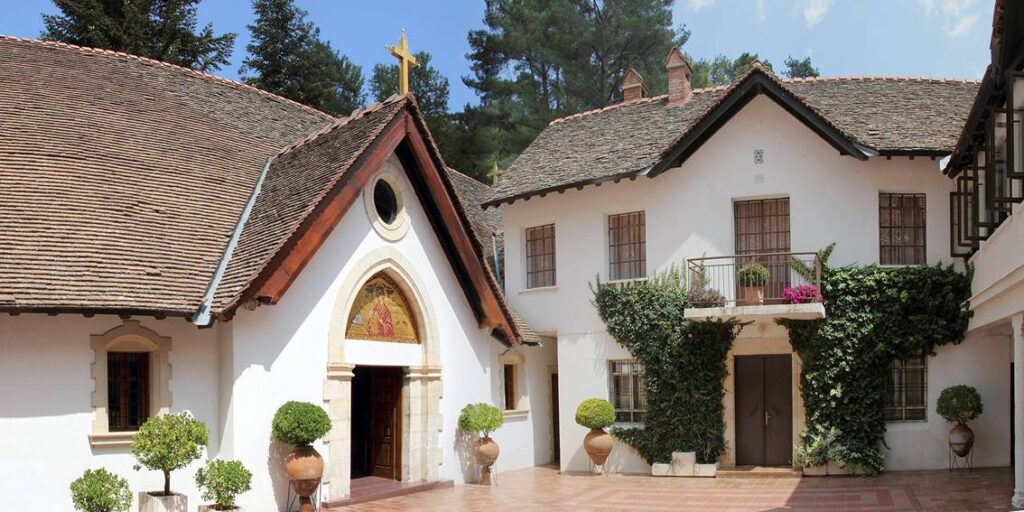
Panagia of Trooditissa Monastery
Another key destination is the Panagia of Trooditissa Monastery, also in the Troodos Mountains. Pilgrims often participate in overnight vigils, praying and lighting candles to seek the Virgin Mary’s intercession.
Cultural and Social Celebrations
Beyond religious observances, Dekapentavgoustos is a major cultural event in Cyprus. It is a public holiday and marks the peak of the summer season.
Family Gatherings and Feasts
Many Cypriots return to their ancestral villages during this time. They reconnect with relatives and enjoy the slower pace of rural life. Families gather for communal meals featuring traditional Cypriot dishes like souvla (meat cooked on a spit), kleftiko (slow-cooked lamb), and meze (small dishes). Seasonal fruits like watermelon and figs are also abundant.
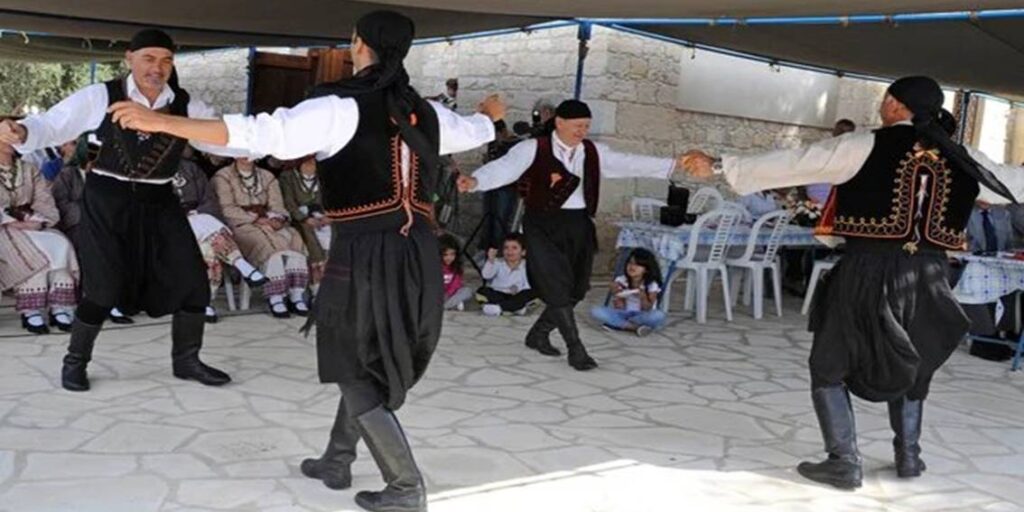
Traditional Music and Dance
Villages often host cultural events, including traditional music and dance performances. The sounds of the violin and laouto (a stringed instrument) fill the air as people dance the sousta, a traditional Cypriot dance. These celebrations express Cypriot identity, blending religious reverence with cultural pride.
The Spirit of Community
Dekapentavgoustos fosters a strong sense of community in Cyprus.
Shared Rituals and Celebrations
Through shared religious rituals, communal meals, and cultural festivities, the day brings people together in unity and solidarity. Social barriers are set aside as people celebrate their shared heritage and faith.
Reflection on Values
For many Cypriots, the day is a time to reflect on their connection to the Virgin Mary and the values she represents—humility, compassion, and love. It reminds them of the importance of faith in daily life and the strength of community in preserving traditions.
Conclusion
Dekapentavgoustos is a day of profound significance in Cyprus. It blends deep religious devotion with rich cultural traditions. The day is a time for reflection, celebration, and unity. Whether through church services, pilgrimages, or family gatherings, Cypriots celebrate with reverence and joy. They keep the spirit of the Virgin Mary at the heart of their festivities.

